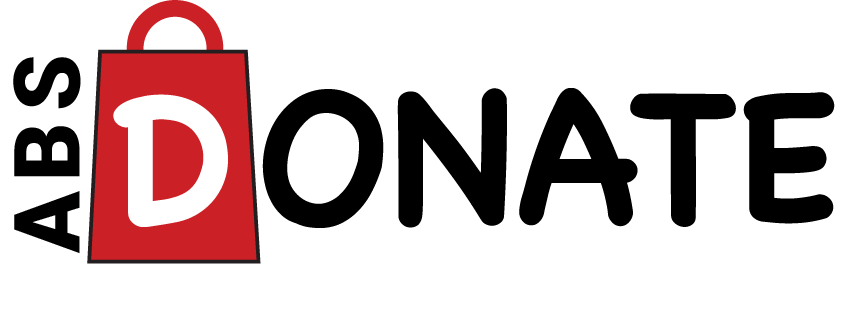Student and Developing Nations Research Grants
Grant Submission deadline is December 15, 2023 at 11:59 PM PST.
The Animal Behavior Society offers the following grants to support graduate student research:
- ABS Student Research Grants
- George W. Barlow Award
- Animal Behavior Society Conservation Award
- Amy R. Samuels Cetacean Behavior and Conservation Grant
- David S. Tuber Award
- Justice Equity Diversity and Inclusion (JEDI) Award
- Developing Nations Research Grant (for students and other researchers)
Applicants for student grants must be enrolled in a graduate program and must be active members of the Animal Behavior Society. Members of the Association for the Study of Animal Behavior are eligible for the Cetacean Behavior Conservation grant. The ABS also offers the Developing Nations Grant to support students and other researchers from developing nations. Research grants range from $500 to $2000 USD, depending on the category of the grant and evaluations.
Applications for all of the awards are submitted in the same online application system; there is an opportunity in the application to specify for which type of award you would like to be considered.
Important Notes:
- Individuals may receive only one ABS research grant during their lifetime. Receipt of an ABS research grant does not preclude receipt of a Developing Nations Grant in a subsequent year, and receipt of a Developing Nations Grant one year does not preclude the receipt of an ABS research grant in a subsequent year.
- All grant applications are required to include a Diversity Equity and Inclusion Statement that will be evaluated in the review process (see details below).
- All Grants should be submitted online following the Guidelines listed below.
General Guidelines:
- Give the proposed work a clear conceptual context and theoretical rationale (reviewers will assess proposals for conceptual significance and intellectual merit).
- Clearly state the feasibility of the proposed work.
- Obtain input from others on successive drafts.
- Consider how you and/or your research contribute to the diversity, equity and inclusion in higher education, your research field, and/or ABS
- Before submission, it is suggested that you have a final draft of your proposal critically reviewed by established researchers, including a senior scientist.
- Clearly state the hypotheses that you propose to test.
- Describe the statistical analyses that you will use for the data that you collect; if your work will be based on techniques that require special statistical justification, include information that will allow reviewers to evaluate them.
- Any pilot data that you include could strengthen the quality of your proposal.
- Start far enough in advance of the closing date to allow time to think about your proposed work in depth, to read relevant published materials, and to obtain input from colleagues.
- Do not use field-specific jargon.
- Click Here to view the SGR and DEI scoring system: guidelines to reviewers
Preparing the Grant
The Research Application must consist of the following components and all of these pages must conform to the following formatting: single-spaced, Arial 11 pt font, 1" (2.5 cm) margins on the top, bottom and two sides, pages numbered successively from 1-8 at the bottom center. Each application must include the sections listed below. Each of these sections should have the section heading on a separate line, followed by the text for the section. Proposals that do not adhere to these specifications will not be reviewed. Please see additional details concerning each section below. When your application is ready to upload, upload it as a single, eight-page pdf file.- Research Proposal (Pages 1-4 | 4 pages max)
- Summary of Proposed Work
- Introduction
- Hypothesis(es) to be tested
- Proposed Research
- Predicted Outcomes
- Importance of Proposed Research
- Diversity Equity and Inclusion Statement
- Bibliography
- Budget and Justification (Pages 5 | 1 page max)
- Curriculum Vitae (Pages 6-7 | 2 pages max)
- Animal Care Questionnaire (Page 8 | 1 page max)
Content Guide
Summary of Proposed Project
This section should consist of a single paragraph providing an overview of the proposed work, a statement about the question to be addressed, a statement about the conceptual significance of the proposed work, and a statement about the intellectual merit and originality of your proposed study. (up to 300 words)Introduction
In this section, provide the relevant background information pertaining to your proposed project, including both classic papers in the area of study and more recent work. Also, provide background information about the organismal system to be used, any relevant pilot data you have collected, and why the system is appropriate for the question(s) to be addressed. Be careful to separate the specific research that is to be done with ABS SRG funds from other research that you are conducting or plan to conduct. Detail how and why the proposed work is important to the particular field of study, as well as the broader significance of the work.Hypothesis(es) to be tested
In this section, list the specific hypothesis(es) to be tested.Proposed Research
In this section, describe the methodology to be used to address the proposed hypothesis(es) and how the data will be statistically analyzed. You should provide sufficient detail for reviewers to understand the methods and analyses. Also, provide any relevant information about your experience and that of any collaborators, and about the logistical support available for the proposed research. Finally, provide a timetable for the proposed work.Predicted Outcomes
In this section, detail how alternative results will be interpreted with respect to your primary hypothesis(es) (e.g., using if/then statements).Importance of Proposed Research
Describe the conclusions that can be drawn from the study and their relevance to the field of animal behavior.Diversity Equity and Inclusion (DEI) Statement
To promote excellent science and dedication to diversity, all research grants are required to have a diversity equity and inclusion statement to highlight applicants’ communication skills, resiliency in the face of setbacks, high standards of ethics and integrity, and commitment to inclusive and equitable science that promotes diversity in the field of animal behavior.The DEI Statement is an opportunity to describe your contributions to diversity which might fall into the following categories.
- Reflection on educational, cultural, economic, or social experiences, that have shaped your academic journey or that influence others.
- Past actions and future plans for active engagement (e.g., employment, service, teaching or other activities) in programs focused on increasing participation by groups that have been historically underrepresented in higher education or programs focused on educating/correcting a majoritarian group or system.
- Past actions and future plans for personal, research, teaching, or mentorship contributions to diversity in general and specifically within ABS.
References Cited
On page 4, provide full reference information for all citations that appear in the body of the proposal. The citations you choose should cover the previous work on the topic and place your study in the broader context of the field.Budget and Justification
On page 5, summarize the proposed uses of the ABS grant funds. This should include: (1) an itemized accounting of the proposed use of the funds; (2) a justification for spending the funds as described; (3) the total budget for the proposed research; (4) an explanation of any other funds currently available from your advisor, department or other sources; and (5) other grant proposals that have been submitted.Research Grants may NOT be used to provide salary supplements, to pay indirect costs (overhead), or to defray tuition fees. In addition, any request for a single item of equipment costing more than $500 will require special justification (i.e., a description of why the item is essential to the success of the proposed research and a statement that it is not available locally). Requests for travel money should be based on ordinary out-of-pocket expenses directly related to the research. Requests for travel money must be based on actual travel expenses rather than governmental mileage and/or per diem rates.
Curriculum Vitae
On pages 6-7, provide relevant information about your educational and scientific experience and achievements, including: name; current institutional affiliation; post-secondary education (including degree dates and advisor names); published papers; awards, honors and fellowships; previous and pending grant support; and research presentations. Make sure to include the highest degree that has/will be awarded. Keep the content concise.Animal Care Questionnaire
On page 8, provide your responses to the Animal Care Questionnaire. Prepare this section after reading the ASAB/ABS Guidelines for the Use of Animals in Research.Animal Care Questionnaire
- Does the proposed study involve endangered species or threatened populations? (Required) Yes/No
- Does the proposed study involve trapping, netting, banding, or in any other way be potentially disturbing to wild populations? (Required) Yes/No *If you selected Yes, please elaborate on your relevant experience. (Required)
- Does the proposed study require permits for you to conduct the research? (Required) Yes/No* If Permits are required, please list the proper permits, one to a line, and indicate if you either have the permit or have applied for the permit. Example:
California State Scientific Collecting Permit (have permit)
Bird Banding and Auxiliary Marking Permits (have: permit #12345)
Institutional 3. Animal Care & Use Committee (IACUC) permit (have applied). - Does the proposed study involve the maintenance of animals in captivity? (Required) Yes/No *If you selected Yes, are the facilities in compliance with ABS guidelines and the laws of the prevailing locality? (Required) Yes/No
- Provide the name of the Certifying Organization.
- Describe the facilities and the animal care protocols. Be concise, but complete.
- Will the animals be subjected to pain? A selection of 'Yes' will provide further information. (Required) Yes/No *If you selected Yes, have alternative procedures been considered? (Required) Please elaborate your answer, including the procedures to be used to minimize pain.
Grant Language Editing Program (GLEP)
The Grant Language Editing Program program (GLEP) aims to provide support for research grant applicants who are interested in editorial assistance with English. The consultants will be invited from among the students who received ABS Student Research Grants (SRG) in the past two years, who are confident in English grammar and have strong editing abilities. The consultants will restrict their comments to grammar and word choice only, feedback on scientific content and merit of the proposal will not be provided through the GLEP.The final version of the proposals must be submitted to the GLEP though the grant submission system one month in advance of the SRG deadline. Participants will receive their proposal with consultants’ comments two weeks before the SRG deadline and will be responsible for proceeding with the submission through the grant system.

